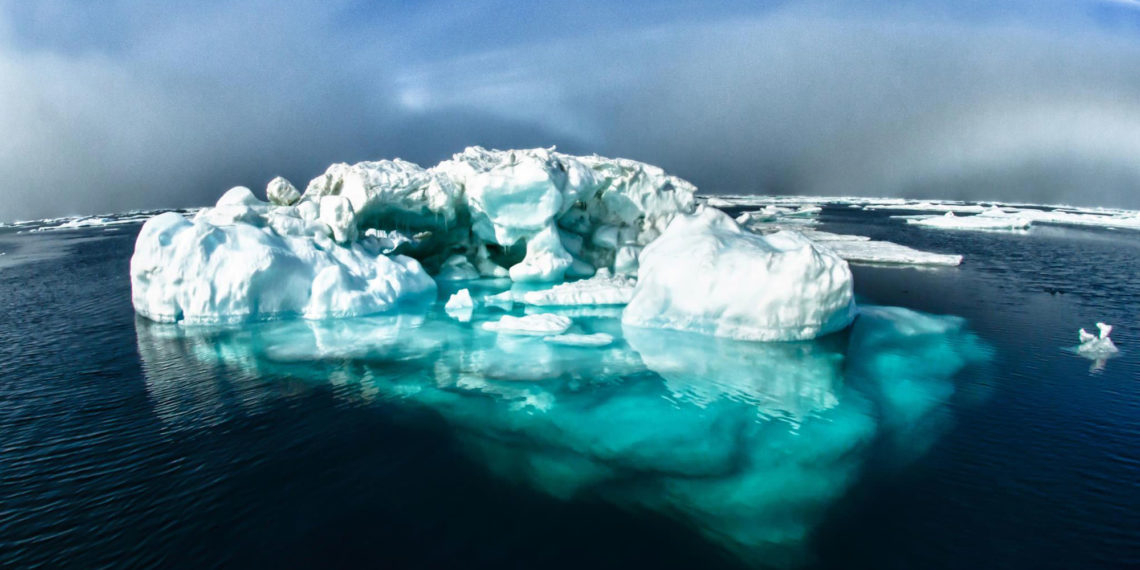Two days after a climate summit failed to deliver game-changing pledges to slash carbon emissions, the United Nations warned Wednesday that global warming is devastating oceans and Earth’s frozen spaces in ways that directly threaten a large slice of humanity.
Crumbling ice sheets, rising seas, melting glaciers, ocean dead zones, toxic algae blooms – a raft of impacts on sea and ice are decimating fish stocks, destroying renewable sources of fresh water, and incubating superstorms that will ravage some megacities every year, according to a landmark assessment approved by the 195-nation Intergovernmental Panel on Climate Change (IPCC).
Some of these impacts are irreversible.
The report, a digest of 7,000 peer-reviewed studies, is a sobering reminder that record greenhouse gas emissions, mostly from burning fossil fuels, are driving the planet towards a hothouse climate our species could find intolerable.
But it also raises more clearly than ever before a red flag on the need to confront changes that can no longer be averted.
For people in some island nations and coastal cities, that will almost certainly mean finding new places to call home
Crumbling Ice Sheets
“Even if we manage to limit global warming, we will continue to see major changes in the oceans,” said Valerie Masson-Delmotte, a researcher at the Laboratory for Climate and Environmental Sciences and an IPCC co-chair.
“But it will at least buy us some time, both for future impacts and to adapt.”
The underlying 900-page scientific report is the fourth such U.N. tome in less than a year, with others focused on a 1.5-Celsius cap on global warming, the decline of biodiversity, as well as land use and the global food system.
All four conclude that humanity must overhaul how it produces, distributes and consumes almost everything to avoid the worst ravages of global warming and environmental degradation.
Glaciers, snow, ice & permafrost are declining and will continue to do so. This is projected to increase hazards for people, for example through landslides, avalanches, rockfalls and floods. More from @IPCC_CH: https://t.co/qsRtFVNUMF #SROCC #ClimateAction pic.twitter.com/AlBquLnbkD
— UN Environment Programme (@UNEP) September 25, 2019
By absorbing a quarter of manmade CO2 and soaking up more than 90 percent of the heat generated by greenhouse gases, oceans have kept the planet livable – but at a terrible cost, the report finds.
Seas have grown acidic, potentially undermining their capacity to draw down CO2; warmer surface water has expanded the force and range of deadly tropical storms; marine heatwaves are wiping out coral reefs, which are unlikely to survive the century.
Most threatening of all, accelerating melt-off from glaciers and especially Earth’s ice sheets atop Greenland and Antarctica are driving sea-level rise.
‘A World of Higher Seas’
Since 2005, the ocean has risen 2.5 times faster than during the 20th century. The rate at which the waterline rises will quadruple again by 2100 if carbon emissions continue unabated, the report found.
“Regardless of emissions scenarios, we face a world of higher sea levels,” said co-author Bruce Glavovic, a professor at Massey University, New Zealand, noting that humanity is concentrated on the world’s shorelines.
“It doesn’t take a big rise in sea level to lead to catastrophic problems,” he added. “Sea level rise is not a slow onset problem – it’s a crisis of extreme weather events.”
By 2050, many coastal megacities and small island nations will experience what were formerly once-a-century weather disasters every year – even with an aggressive drawdown of greenhouse gas emissions.
And by mid-century, more than a billion people will be living in low-lying areas vulnerable to cyclones, large-scale flooding and other extreme weather events amplified by rising seas.
Hefty Price Tag
Some cities, such as New York, are planning to spend tens of billions of dollars – and probably far more – to shore up their defenses.
Indeed, building dikes and levees along with other measures would reduce the risk of flooding caused by sea level rise and storm surges over the next 80 years 100- to 1,000-fold, according to the IPCC report’s 42-page Summary for Policy Makers.
But with a heft price tag: up to hundreds of billions of dollars a year.
For many megacities and sprawling delta cities in the developing world, however, an engineered solution will be impractical or prohibitively expensive.
Under the IPCC’s consensus rules, all countries must sign off on the language of the report’s executive summary, designed to provide leaders with objective, science-based information.
The five-day meeting in Monaco went deep into overtime when Saudi Arabia objected what might have been a routine reference to the October 2018 IPCC report on the feasibility of capping global warming at 1.5 degrees Celsius.
The 2015 Paris Agreement calls for capping global warming at “well below” 2 C, and 1.5 C if possible.
As a result, passages in the final draft were scrubbed, including one estimate that humanity’s “carbon budget” – the amount of CO2 we can emit without breaching a temperature barrier – for a 1.5 C world could be as short as eight years, according to a copy seen by AFP.
Earth’s temperature has so far risen 1 C above pre-industrial levels.
More on the Subject
Greta Thunberg Berates Leaders as UN Climate Summit Falls Short






















